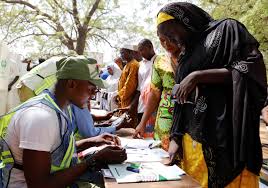By Clement Abayomi
Politics in Nigeria is not just a contest of ambitions; it is a site of power wherein obtaining seats is as costly as it is competitive. In most cases, money speaks louder than manifestos, and connections with powerful people usually count more than having a political vision. Campaigns, rallies, and adverts all cost huge amounts that only a few people can afford. So, engaging in politics in Nigeria requires not just the courage to do so, but SWOLLEN pockets, too! What should be a contest of leadership ideas has now become an expensive race that mostly favours the affluent.
_Stears_ reported that, “winning elections have become increasingly expensive”, particularly when one takes into account the exorbitant costs of obtaining nomination forms and purchasing advertising space, travelling to campaign events, and compensating campaign staff members. Section 88(3) of the revised Electoral Act limits the maximum expenditure for governorship candidates to N1 billion, but the reality on the ground mocks this limit. The cap was previously ₦200 million before this modification, but as _Stears_ said, “these limits were revised with the current amendment since presidential candidates were previously limited to ₦1 billion and governorship candidates to ₦200 million.”
READ ALSO: Shehu Sani: Tinubu holds historic responsibility to reshape Nigeria’s destiny
Adebowale Olorunmola stated that the high expenses often start at the party level, where expression of interest and nomination forms cost “beyond the reach of many”. He noted that while the Peoples Democratic Party collected ₦11 million for governorship forms, the All Progressives Congress charged ₦5.5 million, during the 2015 elections. In fact, in his report, Olorunmola added that President Muhammadu Buhari was said to have got a loan from his bank to pay the ₦27.5 million necessary to get the APC presidential nominations forms.
As further explained by Olorunmola, “. . . political parties capitalised on election periods to make money from candidates through the sales of expression of interest and nomination forms. The costs of these forms are excluded from what constitutes the limit of election spending. However, they are sold at exorbitant fees that makes it tough for anyone but the very rich to obtain them. While it is reasonable that funds be charged to ascertain that only serious candidates obtain them, in reality the enormity of the cost is a barrier to participation in politics”. This, simply put, means that political parties turns elections to an income generator by selling very expensive nomination forms, which end up stopping many from running for political offices.
Moreover, the narrative grows grimmer when one includes the cost of “godfatherism”. As Olorunmola observed, “getting the support of godfathers does not come cheap, whether in monetary terms, which has to be paid in advance, or as a commitment to regular returns.” Besides, governors in some instances are required to send a proportion of the state’s security votes to their political benefactors. As recalled by Olorunmola, Oyo State’s late Chief Lamidi Adedibu once “openly boasted to have sponsored every successful politician, including the governor.” This kind of arrangement often transforms public office into a repayment plan.
A lot of money is also spent during party primaries. This is where votes are often bought and loyalty is traded. Olorunmola emphasised that these primaries are full of corrupt practices, with delegates usually voting for whoever pays the most. For example, some delegates at the 2015 APC presidential primary reportedly got $5,000 each from candidates. The same thing happens at state level, where delegates are “camped” in hotels and paid in cash for their votes. This turns the process into a “political market” where nomination is auctioned to the highest bidder.
Campaigns, of course, offer yet another level of monetary costs. Candidates spend millions on things like billboards, renting crowds, and organising events. Olorunmola explained that radio and TV airtime (especially during popular hours) costs a lot.
“During election periods, radio and television stations’ prime time periods are usually in high demand and therefore attract increased price tags. Funds are budgeted for live coverage of rallies and other political activities with partisan jingles, documentaries and advertisements struggling to dominate the airwaves.”
_Centre for Social Justice_ also reported that in 2015, the PDP and APC spent far more than the legal limits on media campaigns alone. At the state level, many governorship candidates do the same, often spending well above the ₦1 billion limit.
READ ALSO: Seyi Tinubu meets Igbo business leaders to drive cange Nigeria agenda
To conclude, contesting governorship election in Nigeria involves a lot of monetary costs. Because of this, many politicians focus on recovering their expenses instead of serving the people. Governors also feel pressured to repay those who funded their campaigns. These high costs give undue advantages to the rich and limit real choices for voters. This puts money in control of Nigerian politics. Until this arrangement changes, elections will remain a game only the wealthy can play.



